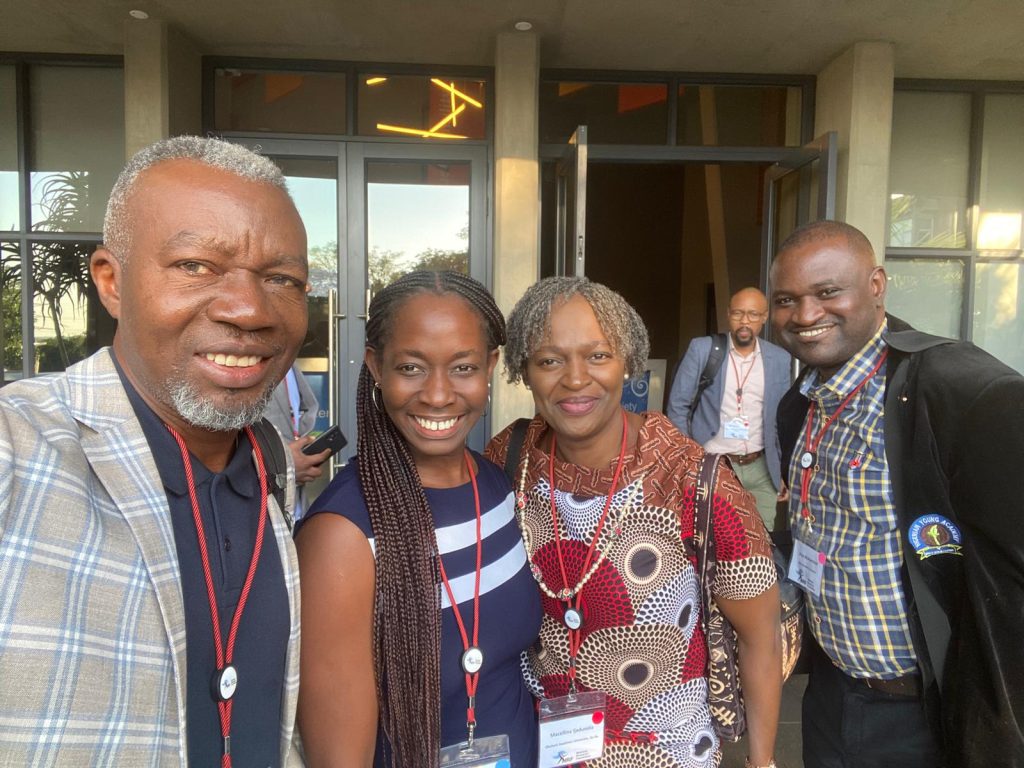The National Research Foundation in Pretoria prides itself not only in funding to advance research career development but also to increase public understanding of science so that science has value to society.
It is no surprise then that the theme of science communication run-through the recent Covid-19 Africa Rapid Grant fund (CARGF) meeting held in the 500-capacity auditorium with delegates from across Africa and Europe. The 2-day program which included talks, panel discussions and poster presentations from grant partners was aimed at reflecting on the outcomes of the CARGF projects and planning for any future emergencies.
As a grant winner, I was there to represent G.H.Scientific and share on our work to empower an integrated community of science communicators. As we agree science has value to society, we are creating a network of scientists, journalists and science communicators.
COVID-19 was not the first disaster to hit the African continent. A few years prior some neighbouring countries were hit with Ebola. Decades before, it was polio and HIV-AIDs. On recurring cycles in Ghana, we have flooding from heavy rains or currently, occasional outbreaks and overflowing dams with many being displaced from their homes.
Traditionally, scientists have been worked in silos, researching behind closed doors and knowledge sharing has been limited to a handful of circles. Journalists have then been forced to work as outlaws, believing that science has value to society, they are always piecing together what information they can for mass consumption. This is far from the ethos of advancing knowledge and finding solutions to improve lives.
In recent times, we are seeing an increase in intentional collaboration and an effort to disseminate research to the public and our non-expert audience with the increasing realisation for the need of science communication. It is a known industry fact that a major setback to advancing research particularly on the continent has been funding. With budget constraints, it is understandable that priority will be placed on research to find solutions and not fund dissemination to the public.
Thanks to the COVID-19 Africa Rapid Grant Fund pulled together by stakeholders such as Sida, UKAID, UKRI, NRF South Africa and the Newton Fund, scientists, educators and media organisations had financial and mentoring support to research, collaborate and deliver on the research and communication of COVID-19. From the experience, we were all successful in addressing some of the pressing disasters threatening society today.

Hence, a common theme that running through the gathering was the importance of science communication if society are to embrace the knowledge and output from researchers.
“Nothing in science has any value to society if it is not communicated.” – Anne Roe
We heard from Dr Fulufhelo Nelwamondo, Chief Executive Officer, NRF on “The embeddedness of the NRF within the African context”, followed by Vinny Pillay, from the department of science and innovation on the grant engagement and initiation process as well as a plenary session on monitoring, evaluation and learning. Dr Christian Owoo from the university of Ghana and head of the intensive care unit at Korle-Bu left the audience pondering over the disaster risk management and the key aspects that need to be considered in planning for the future of humanitarian disasters.
Like most gatherings, the real impact depends on key takeaways and how participants implement the insights and outcomes. I for one. I am reminded that we are on the right track in creating a community for building capacity in STEM through public engagement and outreach activities
